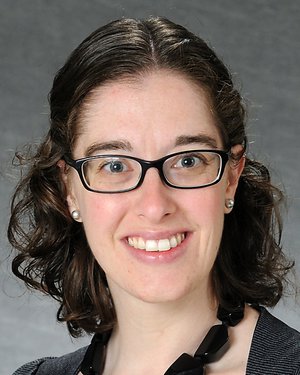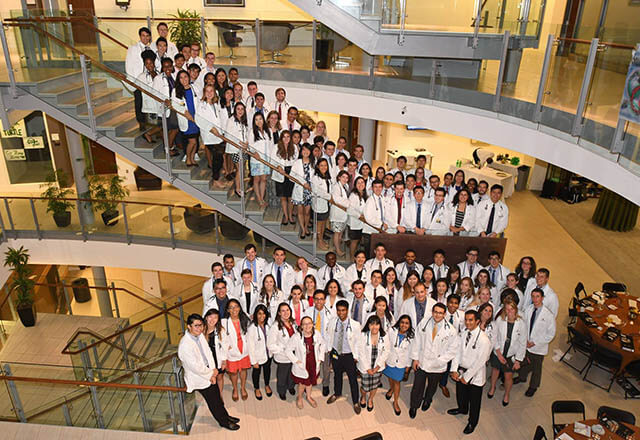Core Clerkship in Emergency Medicine
During the Core Clerkship in Emergency Medicine, students hone skills in the rapid assessment of undifferentiated patients, become comfortable with stabilizing severely ill and injured patients, and develop procedural abilities. In the clinical area, students care for patients with a wide variety of diagnoses, working closely with faculty and residents. Additional educational experiences include participation in weekly medical student lectures, simulation exercises, resident teaching conferences and departmental Grand Rounds.
PRECEDE Overview
In Emergency Medicine PRECEDE (Pre-Clerkship Education Exercises), students are given their first experience "in the driver's seat" for a wide variety of critical care scenarios. In the Johns Hopkins Medicine Simulation Center, students participate in high-fidelity simulations of cardiac arrest, trauma, shock, respiratory distress and more, working in teams to resuscitate their "patients." These scenarios allow students to independently make key resuscitation decisions while practicing teamwork, communication and leadership skills in a highly realistic environment. PRECEDE participants get to experience the consequences of their actions in these scenarios, allowing for a rich and memorable learning experience that ultimately allows them to make meaningful contributions to the "real" critical care cases they will see during their clinical time in the Emergency Department.
Learning Objectives
- Patient Care: Demonstrate proficiency in the acute assessment and management of undifferentiated patients in the Emergency Department setting.
- Medical Knowledge: Demonstrate knowledge of relevant biomedical sciences, and apply this knowledge to patient care in the Emergency Department setting.
- Communication Skills: Demonstrate effective verbal and written communication skills with patients, families, colleagues and supervisors.
- Professionalism: Demonstrate commitment to the highest standards of professional behavior, including accountability, conscientiousness, adherence to ethical principles and sensitivity to diversity.
- Practice-Based Learning and Improvement: Demonstrate ability to critically appraise one’s own quality of patient care, and to continually incorporate new knowledge, evidence and experience into daily practice.
- Systems-Based Practice: Practice evidence-based and cost-effective medicine, while advocating for patients within the context of the health care system.
Clerkship Director
Assistant Director
Contact
Regina Brillman
Medical Student Coordinator
Department of Emergency Medicine
Email: rreed27@jh.edu
Time Commitment and Clerkship Length
This clerkship runs for four weeks.
Clinical Sites for this Clerkship
- Johns Hopkins Hospital Emergency Department - View map
- Johns Hopkins Bayview Medical Center Emergency Department - View map
More on Emergency Medicine
Find out more about medical student programs in emergency medicine.




